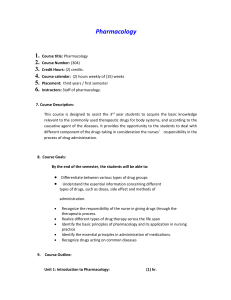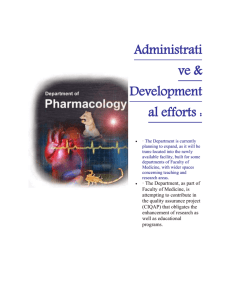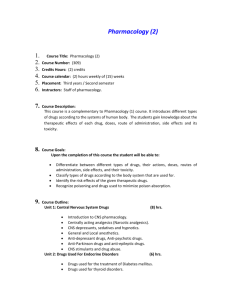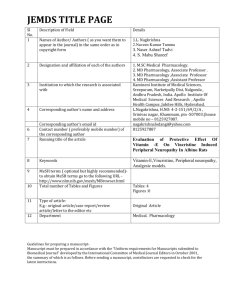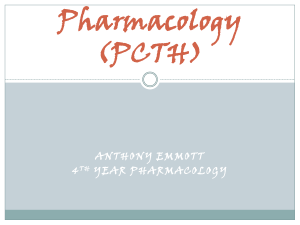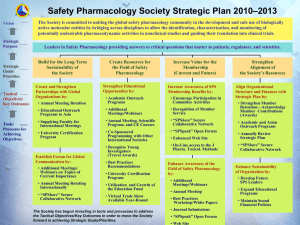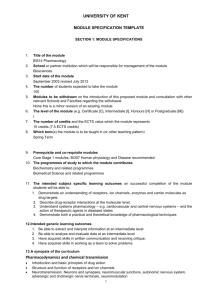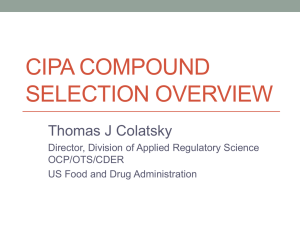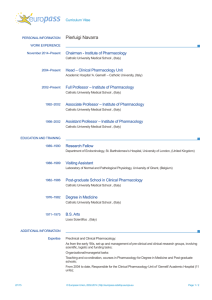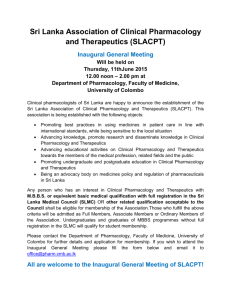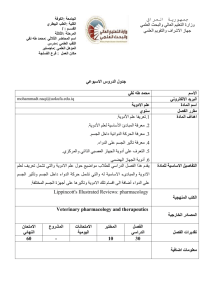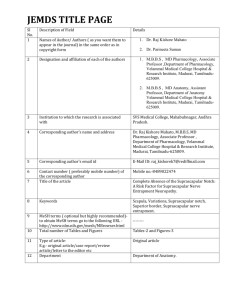Pharmacology
advertisement
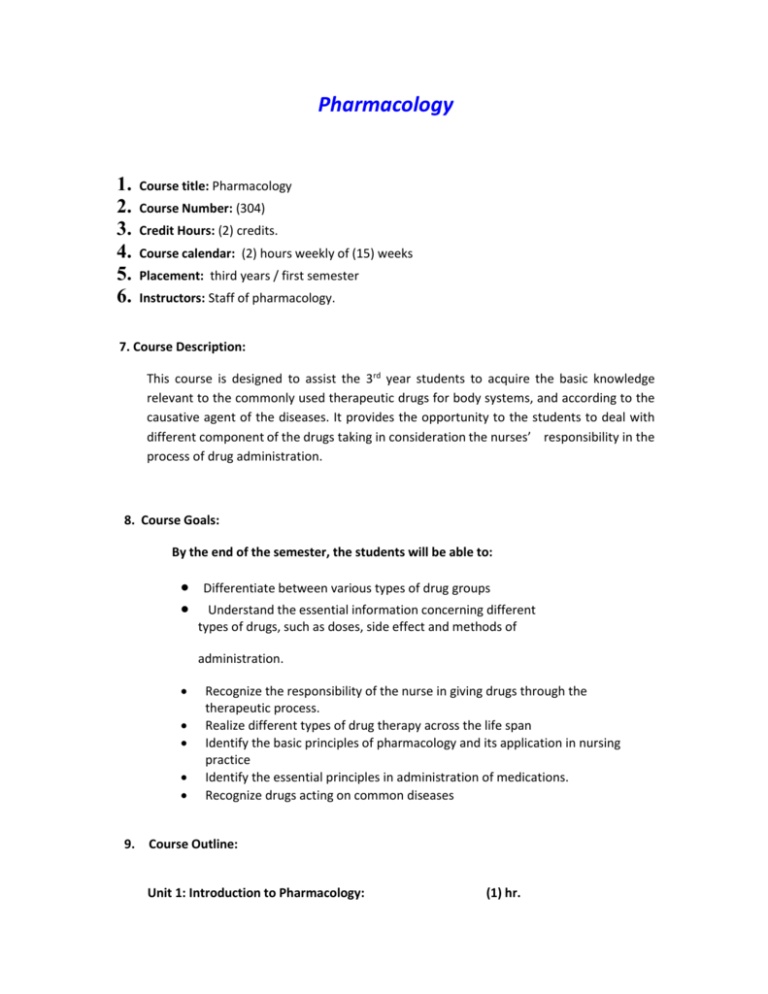
Pharmacology 1. 2. 3. 4. 5. 6. Course title: Pharmacology Course Number: (304) Credit Hours: (2) credits. Course calendar: (2) hours weekly of (15) weeks Placement: third years / first semester Instructors: Staff of pharmacology. 7. Course Description: This course is designed to assist the 3rd year students to acquire the basic knowledge relevant to the commonly used therapeutic drugs for body systems, and according to the causative agent of the diseases. It provides the opportunity to the students to deal with different component of the drugs taking in consideration the nurses’ responsibility in the process of drug administration. 8. Course Goals: By the end of the semester, the students will be able to: Differentiate between various types of drug groups Understand the essential information concerning different types of drugs, such as doses, side effect and methods of administration. Recognize the responsibility of the nurse in giving drugs through the therapeutic process. Realize different types of drug therapy across the life span Identify the basic principles of pharmacology and its application in nursing practice Identify the essential principles in administration of medications. Recognize drugs acting on common diseases 9. Course Outline: Unit 1: Introduction to Pharmacology: (1) hr. Basic terms. Properties of ideal drug. Factors that determine the intensity of drug action. Unit 2: Application of Pharmacology in nursing practice: (1) hr. Application of pharmacology in patient care - Pre-administration assessment. - Evaluating and promoting. - Therapeutic effects. Application of pharmacology in patient education Unit 3: Basic principles of Pharmacology: (2) hrs. Pharmacokinetic terms. Pharmacodynamics. Drug-drug and drug-food interactions. Adverse drug reactions. Individual variations in drug responses. Unit 4: Drug therapy across the life span: (2) hrs. Drug therapy during pregnancy and breast feeding. Drug therapy for pediatric patients. Drug therapy for Geriatric patients. Unit 5: Administration of Medications: (3) hrs. Preventing medication errors. Medication systems. Medication orders. Drug preparations and dosage forms. Routes of drug administration. Unit 6: Autonomic Pharmacology: Basic principles of neuropharmacology. Cholinergic drugs. Muscarinic agonists and antagonists. Cholinesterase inhibitors. Neuromuscular blocking agents. Ganglionic blocking agents. Adrenergic agonists and antagonists. Indirect acting anti-adrenergic agents. (8) hrs. Unit 7: Cardiovascular Pharmacology: Drugs acting on the cardiovascular system. Anti-hypertensive Drugs: - Centrally acting sympatholytics. (8) hrs. - Ganglinic blockers. - Adrenoceptors blocking agents. - Vasodilators. - Drugs acting on the renin-angiotensin system. - Diuretics. Drugs used in the treatment of angina and myocardial infarction. Drugs used for the treatment of heart failure (digoxin and other agents). Anti-arrhythmic drugs. Unit 8: Drugs used in the treatment of Dyslipidemia: (2) hrs. Role of LDL-cholesterol in atherosclerosis. Lipid lowering drugs. Unit 9: Anti-coagulant, anti-platelet and Thrombolytic Drugs: (2) hrs. Overview of drugs used to treat thrombi-embolic disorders. Parenteral anti-coagulants, Oral anti-coagulants, anti-platelet drugs. Thrombolytic drugs. Unit 10: Drugs used for Deficiency Anemia: (1) hr. Iron deficiency. Vitamin B12 deficiency. Folic acid deficiency. 10. Learning Resources: Black board, over head projector, slide projector, and scientific movies. 11. Teaching/ Learning Strategies: Lecture, demonstration, weekly seminars. 12. Students Evaluation: 1st midterm Exam. 20% 2nd midterm Exam. 20% Reports 10% Final Exam. 50% -------------------------------------------Total 100% 13. References: Abrams, Anne Collins, Clinical Drug Therapy: Rationales for Nursing Practice, 6th ed., New York, Lippincott, 2001. Lehne, Richard A., Pharmacology for Nursing Care, 4th ed., London, Saunders, 2001.
